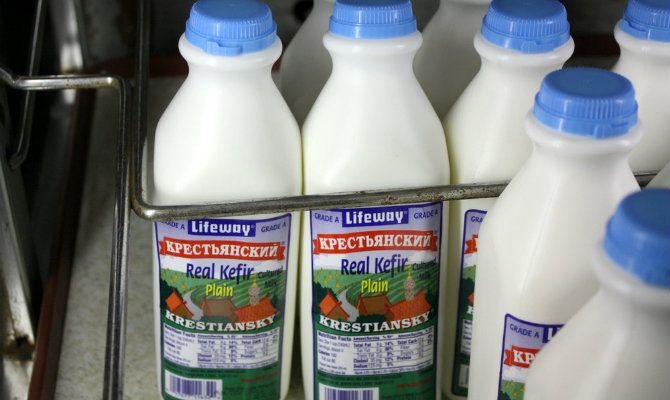What Is Kefir?
Kefir is a drink made of fermented cow, goat, or sheep milk that has been inoculated with kefir "grains," which are cauliflower-shaped clumps of lactobacillales (lactic acid bacteria) and yeasts in a matrix of proteins, lipids, and sugars. Like yogurt, kefir has many health benefits; in fact, the word kefir comes from the Turkish word keyif, which means "feeling good." Kefir was originally consumed by the nomadic shepherding tribes of the northern Caucasus Mountains in Eurasia, so you'll find a lot of it in countries like Russia, the Ukraine, Turkey, and Poland.
"Kefir replenishes beneficial intestinal bacteria," writes nutritionist Linda Page, "which balances stomach pH." According to Page, kefir is protein-rich and full of biotin, B (especially B-12) vitamins, calcium, magnesium, and the amino acid tryptophan, which helps soothe nerves. Kefir is also loaded with probiotics — the good-for-you type of bacteria. Probiotics' benefits range from increasing intestinal flora, which helps with digestion, to synthesizing B vitamins, reducing harmful bacteria in the digestive tract, and even lessening the effects of some food allergies.
In fact, according to Page, kefir might be even healthier than yogurt, as it contains twice the amount of "friendly" bacteria. Nowadays, kefir comes in many flavors, with different brands pushing flavors like blueberry, pomegranate, and coconut chia. The healthiest is probably the plain variety, as it has no added sugars that might cancel out kefir's other health benefits. You can even use kefir for a healthy spin on guacamole, and if you're trying to save money, make kefir at home.
